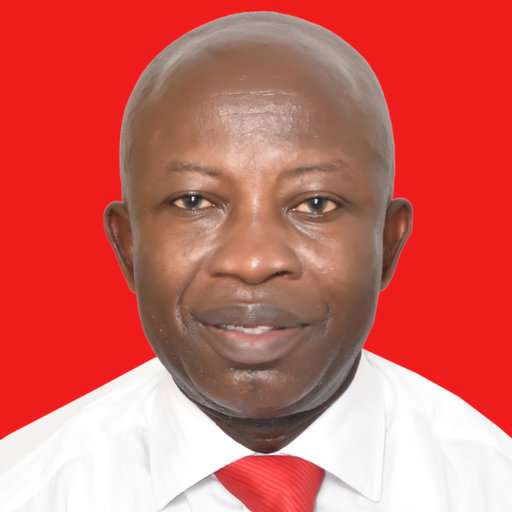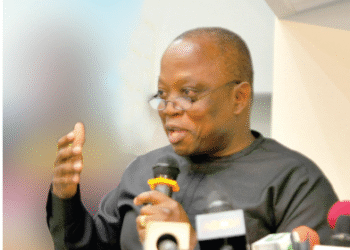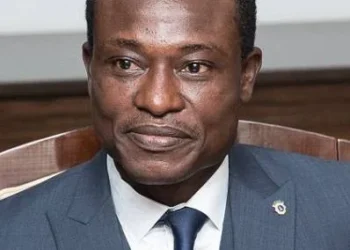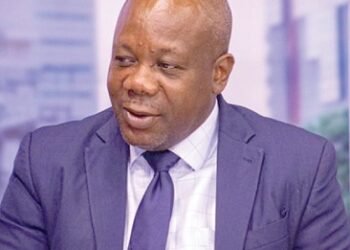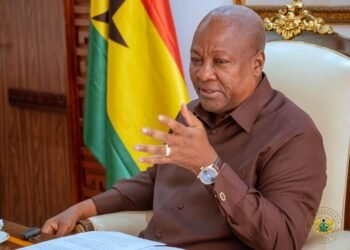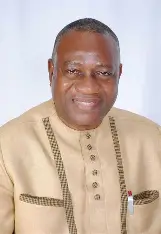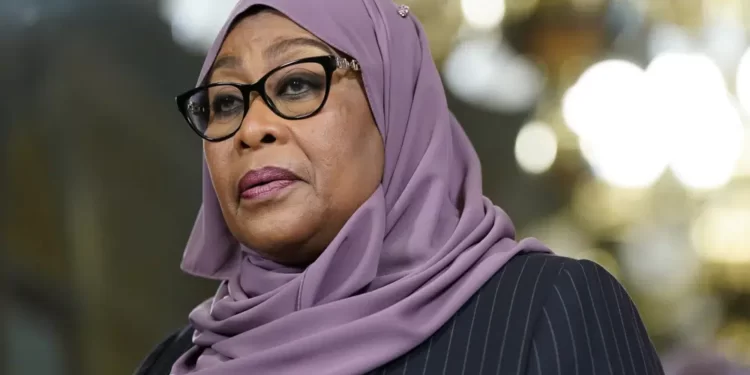A senior Lecturer at the Kwame Nkrumah University of Science and Technology (KNUST) Dr. Kwasi Amakye Boateng has shared insights following the NDC’s refusal to sign a peace pact concerning the upcoming 2024 elections.
Dr. Amakye Boateng emphasized how elections serve as a framework that allows democracy to flourish without the need for conflict, as they determine who governs without violence.
“Elections place difficult rules… crucially establishing peace through how the midgets who get into government and who doesn’t get into it without necessarily having to fight.”
Dr. Kwasi Amakye Boateng Senior Lecturer KNUST
This perspective underscored the importance of ensuring that elections remain credible, free, and fair.
One of the key challenges in any democracy is addressing the concerns of major political actors regarding the electoral process. Dr. Amakye Boateng stressed that if issues arise, particularly regarding the political neutrality of key actors, they must be addressed promptly. Dr. Amakye Boateng acknowledged the fairness of the concerns raised by the National Democratic Congress (NDC).
“If you look at what the NDC has outlined there… they are fair.”
Dr. Kwasi Amakye Boateng Senior Lecturer KNUST
This indicates that addressing grievances is essential to maintaining the integrity of the electoral process.
Dr. Amakye Boateng also pointed out the failure to act on the Ayawasu West Wagon report which was a commission report, this he stated that it a national exercise.
Dr. Amakye Boateng argued that the inability to address the issues highlighted in the report shows a lack of readiness on the part of the country to learn from past mistakes.
“If to date, this report has been thrown somewhere, then it means that as a country we are not ready to learn and to move away from areas that we falter and to keep making progress.”
Dr. Kwasi Amakye Boateng Senior Lecturer KNUST
Moreover, Dr. Amakye Boateng highlighted the significance of institutional guarantees for peace during elections.
Dr. Amakye Boateng advocated for political leaders to publicly declare their commitment to respecting the outcome of the election, emphasizing that the president, although free to campaign, should refrain from making statements that could negatively impact the electoral process.
“You don’t make such pronouncements… that could have any impact negatively on the outcome of the whole electoral exercise.”
Dr. Kwasi Amakye Boateng Senior Lecturer KNUST
This illustrates the importance of preserving a level playing field for all political actors. The role of institutional actors, such as the police, the Electoral Commission (EC), and the judiciary, is also highlighted as critical in ensuring credible elections.
Dr. Amakye Boateng argued that the credibility of the electoral outcomes is crucial, and all actors, including those mentioned, the police, the EC itself, and the judiciary, play a crucial role in ensuring that electoral processes are followed to the letter and that the outcomes are viewed by all participating actors as credible.
Elections and Institutional Framework
This underscores the need for a robust institutional framework that supports the integrity of elections. Political neutrality within these institutions is essential, as members of the EC and other bodies may have their preferences and interests.
However, the institutional structures in place should ensure that, despite these preferences, the election results are viewed as credible.
Dr. Amakye Boateng noted that politics is driven by interest, but stressed that institutions must be designed to guarantee neutrality and fairness in the electoral process.
Dr. Amakye Boateng also draws attention to the judiciary’s critical role in resolving electoral disputes, emphasizing that it is the final authority in determining the legitimacy of election outcomes. Dr. Amakye Boateng highlighted the importance of trust in the judiciary especially during an election period.
“if Political actors [can] understand and believe that the judiciary is independent, strong, and credible, it goes a long way in ensuring that at the end of the day, justice will be served.”
Dr. Kwasi Amakye Boateng Senior Lecturer KNUST
Despite these institutional safeguards, Dr. Amakye Boateng acknowledged that challenges remain. He noted that election disputes and issues of political neutrality are not unique to Ghana but are common in democratic countries worldwide.
Dr. Amakye Boateng draws a comparison with the 2020 U.S. elections, where despite challenges, the Justice Department determined that the issues were minor and did not undermine the overall electoral process. He asserted that “In the elections of 2020 in the United States of America, there were issues… but they were minor.”
Dr. Amakye Boateng believes that peace during elections is not something that can be wished into existence but must be actively worked toward. This reflects the idea that maintaining peace and stability during elections requires continuous effort and commitment from all stakeholders.
Dr. Amakye Boateng’s remarks underscored the importance of political neutrality, institutional guarantees, and the active pursuit of peace during elections. He called for all political actors to play by the rules of the electoral game and for institutions to provide fairness and a level playing field.
According to Dr. Amakye Boateng, these are fair demands, and addressing these concerns is key to ensuring that elections in Ghana, and other democratic nations, remain credible and peaceful.
READ ALSO: Wizkid Shares How He Discarded Football for Music

